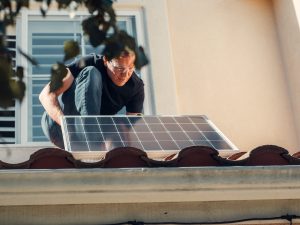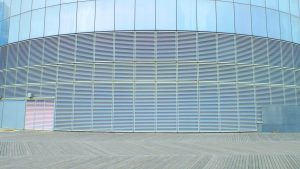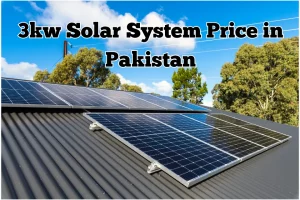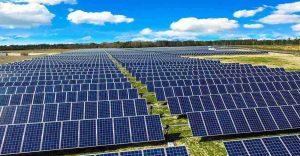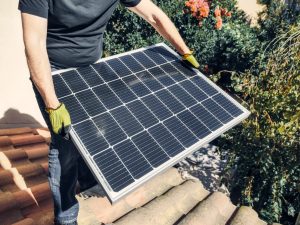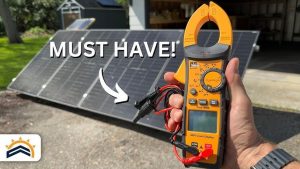Is it worth it to have solar panels in a house? Explained
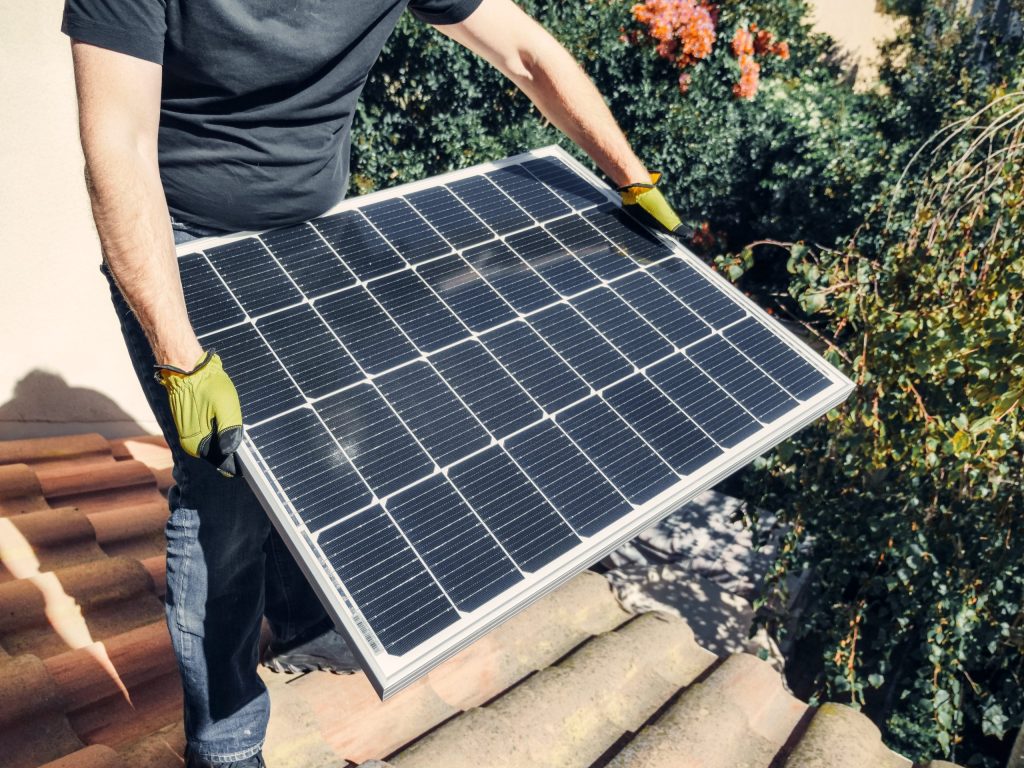
Is it worth it to have solar panels in a house? Explained
Is it worth it to have solar panels in a house? Explained
Solar panels have become synonymous with sustainable living and costeffective energy solutions. As the world grapples with environmental concerns and rising energy costs many homeowners are considering the installation of solar panels. In this article we’ll delve into the various aspects of having solar panels in a house to help you make an informed decision.
Introduction
Solar panels often referred to as photovoltaic panels harness sunlight and convert it into electricity. The popularity of solar energy has soared in recent years driven by both environmental consciousness and the desire to reduce energy bills. This article aims to explore whether having solar panels in a house is truly worth the investment.
Understanding Solar Panels
How Solar Panels Work
Solar panels operate on the principle of photovoltaic effect where sunlight is converted into electricity through the use of semiconductor materials. When sunlight hits the panels electrons are set in motion creating a flow of electricity.
Types of Solar Panels
There are various types of solar panels available including monocrystalline polycrystalline and thinfilm. Each type has its advantages and considerations impacting factors like efficiency and cost.
Advantages of Having Solar Panels
Cost Savings on Energy Bills
One of the primary reasons homeowners opt for solar panels is the potential for significant cost savings on energy bills. By generating electricity from sunlight households can reduce reliance on traditional power sources.
Positive Environmental Impact
Beyond financial savings installing solar panels contributes to a positive environmental impact. The reduction in reliance on fossil fuels helps decrease carbon emissions fostering a more sustainable and ecofriendly lifestyle.
Government Incentives and Rebates
Many governments incentivize the adoption of solar energy through rebates and tax credits. Understanding and taking advantage of these incentives can further enhance the financial viability of installing solar panels.
Considerations Before Installing Solar Panels
Initial Investment and Payback Period
While the longterm savings are enticing homeowners need to consider the initial investment required and the estimated payback period. Advances in technology have reduced these costs but it crucial to evaluate the financial commitment.
Roof Suitability and Space Requirements
Not all roofs are suitable for solar panel installations. Factors such as roof orientation shading and available space need careful consideration to ensure optimal energy production.
Maintenance and Lifespan of Solar Panels
Solar panels require minimal maintenance but understanding the lifespan of the equipment is vital. Knowing when replacements or upgrades might be necessary helps homeowners plan for the future.
RealLife Experiences
To provide a holistic perspective let hear from homeowners who have already embraced solar energy. Their testimonials highlight both the challenges and benefits they encountered during the installation and usage of solar panels.
Testimonials from Homeowners
- “Our energy bills were cut in half after installing solar panels. It a gamechanger for our monthly budget!”
- “I was skeptical at first but the positive impact on the environment made the decision worthwhile.”
Challenges and Benefits
- Overcoming initial skepticism
- Enjoying energy independence and sustainability
Is It Financially Viable?
Calculating Return on Investment
To determine the financial viability homeowners can calculate the return on investment by comparing the initial installation costs with the expected longterm savings on energy bills.
LongTerm Savings Compared to Initial Costs
While the upfront investment may seem significant the longterm savings can far outweigh the initial expenses. Understanding the financial implications over time is key to making an informed decision.
Environmental Impact
Reduction in Carbon Footprint
Beyond financial considerations the environmental impact of solar panels is substantial. Reducing reliance on traditional energy sources contributes to a lower carbon footprint aligning with global efforts to combat climate change.
Contribution to Sustainable Living
Embracing solar energy aligns with a broader commitment to sustainable living. Homeowners can take pride in actively participating in the transition towards cleaner and greener energy solutions.
Advancements in Solar Technology
Innovations in Solar Panel Efficiency
Ongoing advancements in solar technology continually improve panel efficiency making them more attractive for homeowners seeking higher energy yields.
Emerging Trends in the Solar Industry
Exploring emerging trends in the solar industry sheds light on potential future developments. This knowledge can influence the decisionmaking process for those contemplating solar panel installation.
Common Myths about Solar Panels
Addressing Misconceptions and Concerns
Dispelling common myths about solar panels is crucial for informed decisionmaking. From concerns about reliability to misconceptions about maintenance separating facts from fiction is essential.
Separating Facts from Fiction
- Myth: Solar panels are too expensive.
- Fact: The cost of solar panels has significantly decreased in recent years.
Government Policies and Support
Overview of Government Initiatives
Understanding government policies and support for solar energy provides insight into how external factors can influence the decision to install solar panels.
Impact on DecisionMaking
Government initiatives such as tax incentives and rebates can substantially impact the decisionmaking process. Being aware of these factors helps homeowners navigate the financial landscape.
Installation Process
StepbyStep Guide
A stepbystep guide to the installation process provides clarity for homeowners considering solar panels. Exploring options like hiring professionals or opting for a DIY approach ensures a wellinformed decision.
Hiring Professionals vs. DIY Installations
While hiring professionals guarantees a smooth installation some homeowners may consider a DIY approach. Evaluating the pros and cons of each option is crucial for a successful installation.
Maintenance and Upkeep
Regular Checks and Cleaning Procedures
Ensuring the longevity of solar panels requires regular checks and cleaning. Understanding the maintenance requirements helps homeowners keep their solar panels in optimal condition.
Dealing with Common Issues
From minor malfunctions to weatherrelated damages knowing how to address common issues ensures a hasslefree experience for solar panel owners.
Future Outlook of Solar Energy
Anticipated Advancements
Exploring the anticipated advancements in solar technology provides a glimpse into the future of solar energy. From increased efficiency to new applications the future looks promising for solar enthusiasts.
Role of Solar Energy in Future Landscapes
Understanding the role of solar energy in future energy landscapes underscores its significance as a sustainable and essential component of the global energy mix.
Case Studies
Successful Implementation of Solar Panels
Examining successful case studies from various regions showcases the positive impact of solar panels. Learning from the experiences of others can guide homeowners in their decisionmaking process.
Lessons Learned
- Importance of proper installation
- Adapting to regional climate challenges
Final Word
In the decision to install solar panels in a house involves weighing various factors including financial considerations environmental impact and advancements in technology. While the initial investment may pose challenges the longterm benefits in terms of cost savings and sustainability make it a worthwhile venture for many homeowners.
FAQs Frequently Asked Questions
- How much do solar panels typically cost?
- The cost of solar panels varies but has decreased significantly in recent years. Factors like system size and type impact the overall cost.
- What government incentives are available for solar panel installation?
- Government incentives include tax credits rebates and other financial benefits that vary by region. Researching local policies is crucial.
- Do solar panels require a lot of maintenance?
- Solar panels are lowmaintenance but benefit from regular checks and cleaning to ensure optimal performance.
- Can solar panels work during cloudy days?
- While solar panels are most effective in direct sunlight they can still generate electricity on cloudy days although at a reduced rate.
- How long do solar panels typically last?
- Solar panels have a lifespan of 2530 years or more making them a longterm investment for homeowners.

Source of Image: https://www.pexels.com/photo/a-person-in-black-shirt-holding-a-solar-panel-while-standing-on-the-roof-9875441/
